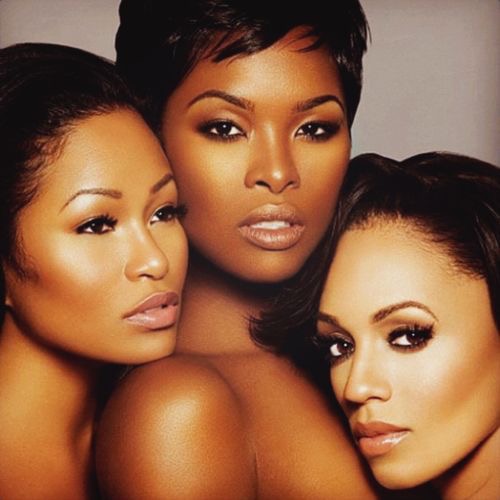
Hair and beauty is no stranger to the black household. From as far back as I can remember my mother was pressing my hair, showing me how to moisturize and condition and teaching me the proper way to tie my silk head scarf. Hair is a part of our style and culture. It is our accessory and when our hair looks nice we feel good. No—we feel great. We will spend our last dollar to make sure our hair is on point and we’ve contribute over a billion dollars a year by doing so. OVER A BILLION DOLLARS!!! Do I have your attention? Our hair, meaning Black hair, is a multi-billion dollar industry but we are not not the one’s profiting from it. Whether you rock a natural or a weave, you’ve shopped at your local beauty supply. You’ve strolled the aisles browsing the new Black hair care products, trying some of them while never abandoning the Dark and Lovely’s and Blue Magic products that you grew up on.
This beauty supply store is filled with everything and most of the products are catered toward Black hair care. You select your products and head to the register where you purchase your items and you pay the store owner which is usually— Korean. Korean? (side eye). How does this make sense? Isn’t this beauty store located in your urban neighborhood? Aren’t the products marketed toward you and your afro centric hair? The answer is yes. So what’s wrong with this picture? What is wrong with the fact that billions of dollars is made in the Black hair care industry and not one cent is going back into your BLACK community?
It is no secret Korean’s have dominated the Black hair industry. This has been a fact for many years and most of us have not only began to expect it, we’ve also began to except it. I’ve been guilty of it myself. However, I was astounded to learn the truth to why less than 5% of the beauty supply stores that cater to Black people are black-owned. LESS THAN 5%.
THE UGLY TRUTH BEHIND THE BEAUTY
I watched, Black Hair, a documentary by Aron Ranen, which discussed the Korean’s monopolizing the Black Hair Care industry. In the documentary it is discussed how Korean’s have pushed Black’s out of the business. I’m not talking just Black owned beauty supply stores. I’m also talking about manufacturing and distribution. According to Ranen, there are only four central distributors serving beauty supply stores in the country and these Korean owned distributors discriminate against Black store owners in order to continue to monopolize the industry. Devin Robinson, owner of Atlanta’s Beauty Supply Institute, was quoted saying, “The Koreans strategically make it harder for us to get into the business. They have the supplies the customers want. They sell it to us at higher prices or they deliver the products late to the black-owned stores. Sometimes they don’t allow orders from us at all.”
Where did this fascination for Black hair come from in the Korean community? I did some research. According to the book, “On my Own: Korean Businesses and Race Relations in America”, the rise of the YH Trade wig manufacturing company was significant. Founder Yung Ho Chang conceived the idea of the company while working as the vice-director of Korean Trade Promotion Corporation in the U.S. between 1965 and 1978, exporting $100 million worth of wigs. Korean wig merchants noticed the popularity of the wigs in the Black community and in 1965 they joined together and convinced the Korean government to outlaw the export of raw hair.
The Korean community migrated to the United State opening larger stores, buying out the smaller black-owned beauty supply stores, using Black images and celebrities to promote their products, all the while, their intention being to push us out of the industry.
MONEY IS POWER
It’s baffling that we, as Black women, have no idea how much power we have when it comes to re-transforming the Black Hair industry and taking back what rightfully belongs to us. It does not make sense that Korean’s make more money from something that belongs to us—our hair. Sure, we can roll our eyes and disregard this entire article by saying (or thinking) what’s done is done. Or, we can do something about it. We hold all the power, as the consumer, because we consist of more than half of the Korean owned beauty supply customer base.
There is a reason why boycotts were so effective during the Civil Rights Era. When you stop a business from making money you get the attention needed to make change. After watching the Black Hair document I have gone on a “Beauty Boycott” so to speak, where I have only allowed myself to purchase products from black owned beauty supply stores. I know this tasks can be daunting considering black owned beauty supply stores is a rarity and even if there is one in your area most of products are not manufactured or distributed by Black people but you have to start somewhere. Just spending your money at a Black owned beauty supply keeps the money in your community a little longer.
So for those who would like join my mission and take back the Black hair care industry, I’ve listed several black owned beauty supplies available online.
http://www.tendrilsandcurls.com/
Photo Source-Pinterest via Chocalatehighhh.tumblr.com

Thank you, you’re right, we have to start somewhere. BUY BLACK.
Thank you for reading Toni’s article. Amazing.